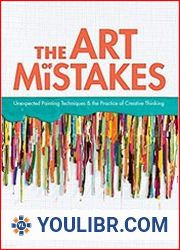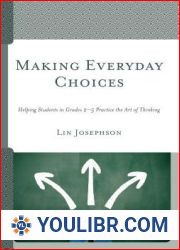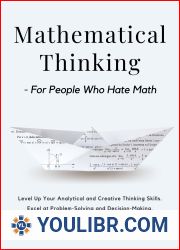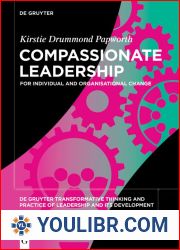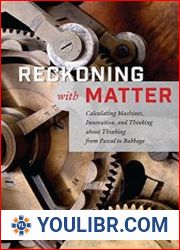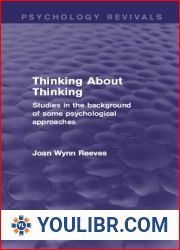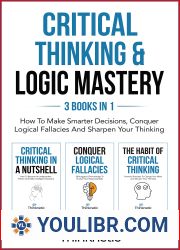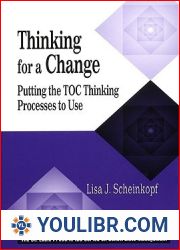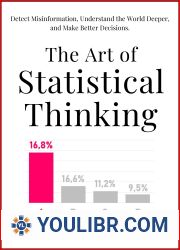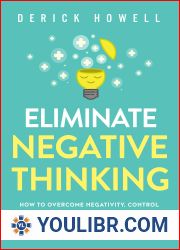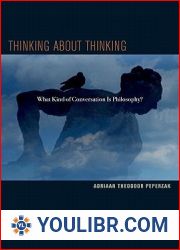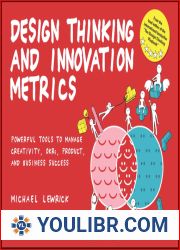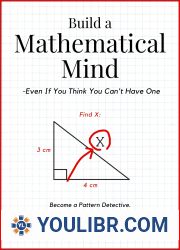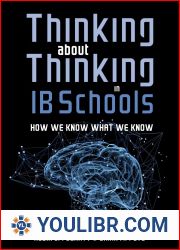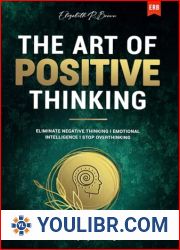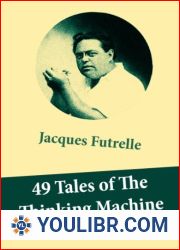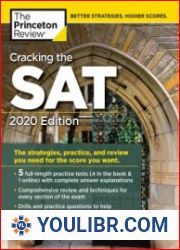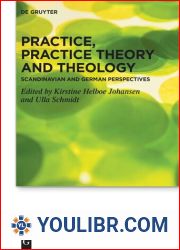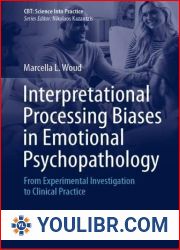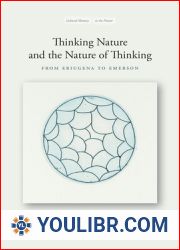
BOOKS - The Practice of Not Thinking: A Guide to Mindful Living

The Practice of Not Thinking: A Guide to Mindful Living
Author: Ryunosuke Koike
Year: January 1, 2021
Format: PDF
File size: PDF 2.0 MB
Language: English
Year: January 1, 2021
Format: PDF
File size: PDF 2.0 MB
Language: English
The Practice of Not Thinking: A Guide to Mindful Living In today's fast-paced world, it's easy to get caught up in the constant stream of information and technology that surrounds us. We are constantly bombarded with notifications, emails, social media, and other forms of digital communication, which can lead to a state of constant distraction and overstimulation. This can cause us to lose touch with our own thoughts, feelings, and physical sensations, leading to a sense of disconnection and unhappiness. However, there is a way to break free from this cycle and find a more peaceful and fulfilling existence. The Practice of Not Thinking: A Guide to Mindful Living offers practical and life-changing ways to do just that. Former monk Ryunosuke Koike has written this book as a guide to help readers reconnect with their five senses and live in a more mindful way. By incorporating simple Zen practices into daily life, we can learn to quiet our minds and focus on the present moment. Through breathing exercises, meditation, and other techniques, we can train our brains and bodies to let go of negative thoughts and emotions, leading to a greater sense of calm and well-being. The book begins by exploring the concept of "not thinking" and how it differs from simply turning off our minds. Instead, it's about learning to observe our thoughts without judgment, allowing us to see them for what they are - mere thoughts - rather than becoming caught up in them.
Практика не думать: Руководство к осознанной жизни В современном быстро меняющемся мире легко попасть в постоянный поток информации и технологий, которые нас окружают. Нас постоянно бомбардируют уведомлениями, электронными письмами, социальными сетями и другими формами цифрового общения, что может привести к состоянию постоянного отвлечения внимания и чрезмерной стимуляции. Это может привести к тому, что мы потеряем связь с нашими собственными мыслями, чувствами и физическими ощущениями, что приведет к ощущению разобщенности и несчастья. Однако есть способ вырваться из этого цикла и найти более мирное и полноценное существование. Практика не думать: Руководство к осознанной жизни предлагает практические и изменяющие жизнь способы сделать именно это. Бывший монах Рюноскэ Коикэ написал эту книгу в качестве руководства, чтобы помочь читателям восстановить связь со своими пятью чувствами и жить более осознанно. Включив простые практики дзэн в повседневную жизнь, мы можем научиться успокаивать свой разум и сосредоточиться на настоящем моменте. С помощью дыхательных упражнений, медитации и других методов мы можем тренировать наш мозг и тела, чтобы отпустить негативные мысли и эмоции, что приведет к большему ощущению спокойствия и благополучия. Книга начинается с изучения понятия «не думать» и того, чем оно отличается от простого выключения нашего разума. Вместо этого речь идет о том, чтобы научиться наблюдать за нашими мыслями без осуждения, позволяя нам видеть их такими, какие они есть - просто мыслями - вместо того, чтобы быть захваченными ими.
Die Praxis des Nicht-Denkens: Ein itfaden zum bewussten ben In der heutigen schnelllebigen Welt ist es leicht, in den ständigen Strom von Informationen und Technologien, die uns umgeben, einzutauchen. Wir werden ständig mit Benachrichtigungen, E-Mails, sozialen Medien und anderen Formen der digitalen Kommunikation bombardiert, was zu einem Zustand ständiger Ablenkung und Überstimulation führen kann. Dies kann dazu führen, dass wir den Kontakt zu unseren eigenen Gedanken, Gefühlen und körperlichen Empfindungen verlieren, was zu einem Gefühl der Trennung und des Unglücks führt. Es gibt jedoch einen Weg, aus diesem Kreislauf auszubrechen und eine friedlichere und erfülltere Existenz zu finden. Praxis, nicht zu denken: Der itfaden zum bewussten ben bietet praktische und lebensverändernde Wege, genau das zu tun. Der ehemalige Mönch Ryunoske Koike schrieb dieses Buch als itfaden, um den sern zu helfen, sich wieder mit ihren fünf nnen zu verbinden und bewusster zu leben. Indem wir einfache Zen-Praktiken in den Alltag integrieren, können wir lernen, unseren Geist zu beruhigen und uns auf den gegenwärtigen Moment zu konzentrieren. Durch Atemübungen, Meditation und andere Techniken können wir unser Gehirn und unseren Körper trainieren, um negative Gedanken und Emotionen loszulassen, was zu einem größeren Gefühl von Ruhe und Wohlbefinden führt. Das Buch beginnt damit, das Konzept des „Nicht-Denkens“ zu studieren und wie es sich von der bloßen Abschaltung unseres Geistes unterscheidet. Stattdessen geht es darum, zu lernen, unsere Gedanken zu beobachten, ohne zu urteilen, und uns zu erlauben, sie so zu sehen, wie sie sind - nur Gedanken -, anstatt von ihnen erfasst zu werden.
''
Düşünmemenin Pratiği: Dikkatli Yaşam Kılavuzu Günümüzün hızla değişen dünyasında, bizi çevreleyen sürekli bilgi ve teknoloji akışına kapılmak kolaydır. Sürekli olarak bildirimler, e-postalar, sosyal medya ve diğer dijital iletişim biçimleriyle bombardımana tutuluyoruz, bu da sürekli bir dikkat dağınıklığı ve aşırı uyarılma durumuna yol açabilir. Bu, kendi düşüncelerimiz, duygularımız ve fiziksel duyumlarımızla teması kaybetmemize neden olabilir, bu da kopukluk ve mutsuzluk duygularına yol açabilir. Ancak, bu döngüden kurtulmanın ve daha huzurlu ve tatmin edici bir varoluş bulmanın bir yolu var. Düşünmemek Uygulaması: Dikkatli Yaşam Rehberi, bunu yapmak için pratik ve yaşamı değiştiren yollar sunar. Eski keşiş Ryunosuke Koike, bu kitabı okuyucuların beş duygularıyla yeniden bağlantı kurmalarına ve daha bilinçli yaşamalarına yardımcı olacak bir rehber olarak yazdı. Basit Zen uygulamalarını günlük yaşama dahil ederek, zihinlerimizi sakinleştirmeyi ve şu ana odaklanmayı öğrenebiliriz. Nefes egzersizleri, meditasyon ve diğer tekniklerle, beyinlerimizi ve bedenlerimizi olumsuz düşünceleri ve duyguları bırakmak için eğitebiliriz, bu da daha büyük bir sakinlik ve refah duygusuna yol açar. Kitap, "düşünmemek" kavramını ve zihnimizi kapatmaktan ne kadar farklı olduğunu inceleyerek başlıyor. Bunun yerine, düşüncelerimizi yargılamadan gözlemlemeyi öğrenmek, onları olduğu gibi görmemize izin vermek - sadece düşünceler - onlar tarafından yakalanmak yerine.
ممارسة عدم التفكير: دليل للعيش اليقظ في عالم اليوم سريع التغير، من السهل أن ننشغل بالتدفق المستمر للمعلومات والتكنولوجيا التي تحيط بنا. نحن نتعرض باستمرار للإشعارات ورسائل البريد الإلكتروني ووسائل التواصل الاجتماعي وأشكال أخرى من الاتصالات الرقمية، مما قد يؤدي إلى حالة من الإلهاء المستمر والتحفيز المفرط. هذا يمكن أن يجعلنا نفقد الاتصال بأفكارنا ومشاعرنا وأحاسيسنا الجسدية، مما يؤدي إلى مشاعر الانفصال والتعاسة. ومع ذلك، هناك طريقة للخروج من هذه الدورة وإيجاد وجود أكثر سلامًا وإشباعًا. تقدم ممارسة عدم التفكير: دليل للحياة اليقظة طرقًا عملية وتغير الحياة للقيام بذلك بالضبط. كتب الراهب السابق ريونوسوكي كويكي هذا الكتاب كدليل لمساعدة القراء على إعادة الاتصال بمشاعرهم الخمسة والعيش بوعي أكبر. من خلال دمج ممارسات Zen البسيطة في الحياة اليومية، يمكننا تعلم تهدئة عقولنا والتركيز على اللحظة الحالية. من خلال تمارين التنفس والتأمل والتقنيات الأخرى، يمكننا تدريب أدمغتنا وأجسادنا على التخلي عن الأفكار والعواطف السلبية، مما يؤدي إلى إحساس أكبر بالهدوء والرفاهية. يبدأ الكتاب بفحص فكرة «عدم التفكير» وكيف يختلف عن مجرد إغلاق عقولنا. بدلاً من ذلك، يتعلق الأمر بتعلم مراقبة أفكارنا دون حكم، والسماح لنا برؤيتها كما هي - مجرد أفكار - بدلاً من التقاطها من قبلهم.










